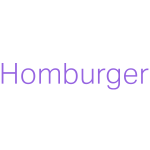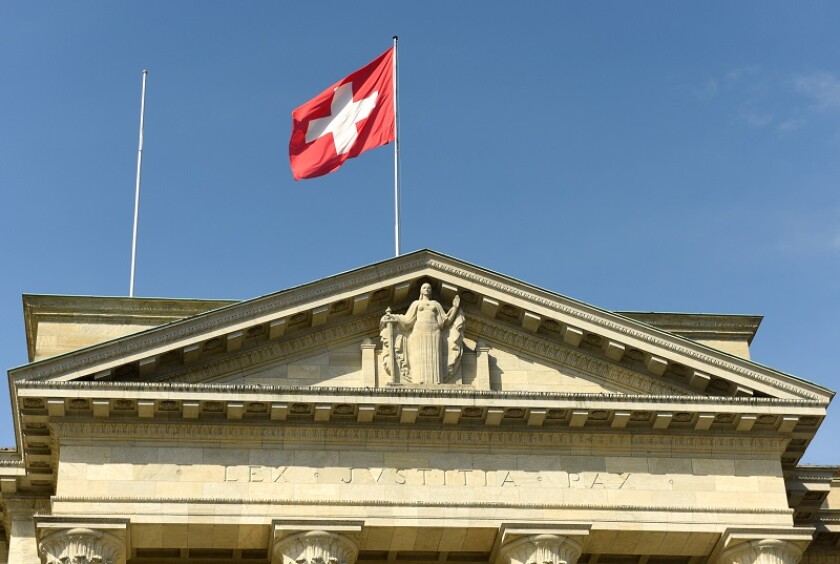In 2016, the Swiss government announced it would reduce barriers to market entry for fintech companies. Since August 1 2017, two of the three pillars of Swiss fintech-specific regulation are in force: a largely unregulated innovation area (sandbox) has been implemented and the maximum period during which third party funds can be held in so-called settlement accounts has been extended from just seven to 60 days.
Swiss fintech regulation is, however, subject to ongoing amendments. This article highlights select current challenges, with a particular focus on initial coin offerings (ICOs).
ICOs: the Swiss approach to issuances of blockchain-based tokens
Switzerland has accounted for some of the largest ICOs and has had success in attracting developers and investors, in particular due to its business-friendly regulations and digital expertise. This has led to the creation of the so-called crypto valley in the Zug-Zurich area, one of the world's leading distributed ledger and blockchain ecosystems.
On February 16 2018, the Swiss Financial Market Supervisory Authority (Finma) published its Guidelines for enquiries regarding the regulatory framework for initial coin offerings (ICO Guidelines). The ICO Guidelines follow a Finma guidance of September 29 2017, as well as a warning about fake cryptocurrencies, published on September 19 2017. In the warning, Finma communicated that an issuer of so-called e-coins and a related trading platform had been closed down. The reason for the enforcement action was that these E-Coins were, according to Finma, unlike 'real cryptocurrencies, which are stored on distributed networks and use blockchain technology,' completely under the issuers' control and stored locally on its servers. In the most recent guidelines, Finma has further clarified how it will assess specific projects.
The ICO Guidelines basically affirm that the issuance and offering of tokens may be a way to publicly raise funds for entrepreneurial purposes. Even though no typical or standard ICO exists, most of these fundraising processes share two common elements: first, investors transfer funds, often in the form of virtual currencies, to an ICO organiser/issuer; second, in return they receive blockchain-based tokens which are created and stored in a decentralised form either on a blockchain-infrastructure, which was specifically created for the ICO, or through an existing blockchain-infrastructure (eg ethereum-blockchain).
In the ICO Guidelines, Finma states it will assess specific projects on a case-by-case basis. Enquiries regarding planned ICOs may be sent directly to Finma's designated fintech desk, which accepts submissions in one of Switzerland's official languages (German, French or Italian) as well as in English.
This remarkable approach by Finma underscores that the Swiss regulator is open to new technologies and willing to support market participants in an efficient and straightforward way. In order to obtain a no action letter or similar statement from Finma within a reasonable timeframe and with the desired degree of comfort, it is recommendable to not only provide the minimum information (as set out in the appendix to the ICO Guidelines) but to also make specific statements reflecting a Swiss financial market law analysis.
When assessing an ICO, Finma will look at the facts of the individual case and take into account, in particular, the functionalities of the tokens and the rights such tokens will grant to investors.
Using an economic approach and looking at the substance not the form, Finma distinguishes the following three basic categories of tokens:
Payment tokens (or pure cryptocurrencies; eg bitcoin) are tokens which are intended to be used, now or in the future, as (i) means of payment for acquiring goods or services, or (ii) means of money or value transfer. Payment tokens do not give rise to any claims against an issuer.
Utility tokens are tokens that, at the point of issue, provide digital access to an application or service by means of a blockchain-based infrastructure.
Asset tokens are tokens which represent an asset, for example an equity or a debt claim against the issuer or a membership right in the corporate law sense. In terms of their economic function such tokens are analogous to equity instruments, debt instruments or derivatives.
Finma points out that tokens may fall into more than one of the three basic categories. Thus, asset tokens and utility tokens may, for example, also qualify as payment tokens, if they offer a peer-to-peer settlement function or can be used as a means of payment (regardless of whether it was the issuer's intention or not that these tokens may be used as a means of payment). Hence, such hybrid tokens may qualify as both securities (see below) and trigger requirements under anti-money laundering (AML) regulation (see below).
As well as Finma, the Swiss government has also acknowledged that ICOs and blockchain technology in general give rise to fundamental legal questions concerning not only financial market regulation but also fundamental areas of Swiss law (e.g. property and contract law). In January 2018, a working group initiated by the Swiss federal government therefore started to evaluate the legal framework for financial sector-specific applications of blockchain technology, with a particular focus on ICOs. The working group's tasks cover the identification of needs for action and the presentation of possible solutions. The goal is to increase legal certainty, to maintain the integrity of the financial market and to ensure technology-neutral regulation. Results from this working group are expected in the course of 2018.
The working group will likely also address whether blockchain-based tokens may qualify as an object (Sache) under Swiss law. To date, this question is still open and therefore it is unclear whether investors may actually own tokens from a Swiss property law perspective. Whether blockchain-based tokens qualify as objects has, for example, an impact on how such assets are treated in bankruptcy. This is in particular relevant if services providers store tokens on behalf of investors. Whether such tokens can be segregated in case of insolvency of the service provider is untested.
Tokens as securities
The ICO Guidelines focus on initial offerings of coins/tokens, ie activities relating to the primary market. One of the key regulatory questions in this phase is whether or not the issued tokens are securities.
The Swiss legal concept of securities differs from concepts used in other jurisdictions (such as the concept used in the US). Under Swiss law, instruments qualify as securities if they are: (i) standardised; (ii) suitable for mass trading; and (iii) either certificated securities, uncertificated securities, derivatives or intermediated securities. An instrument is deemed to be standardised and suitable for mass trading if it is either publicly offered and has the same structure (interest, maturity) and denomination (amount) or if it is placed with more than 20 investors and has not been specifically created for a particular counterparty / investor. Whether an instrument is listed or not is irrelevant; ie both listed and unlisted instruments may qualify as securities.
If tokens qualify as securities the main practical consequence is that activities relating to such tokens may trigger securities dealer licence requirements under the Swiss Stock Exchange Act. Persons involved in an ICO could in particular qualify as derivatives firms or issuing houses. Anyone who, in a professional capacity, creates tokens qualifying as derivatives and offers them to the public on the primary market is deemed to be a derivatives firm. Consequently, someone who, in a professional capacity, issues tokens that are linked to the performance of a share or a project may qualify as a securities dealer. Furthermore, anyone who, in a professional capacity, underwrites tokens qualifying as securities issued by third parties and offers them to the public on the primary market is deemed to be an issuing house.
However, such licence requirements do not apply as long as the person engaging in securities dealer activities has no physical presence in Switzerland. Hence, acting on a mere cross-border basis does not trigger a duty to obtain a securities dealer licence from Finma.
Tokens and secondary market trading
Issuers often intend to create a secondary market, where the tokens can be traded after the ICO. Operating a platform in or from within Switzerland which enables such secondary trading may trigger licensing requirements.
Under the Swiss Financial Market Infrastructure Act, trading venues such as multilateral trading facilities require a licence from Finma. Furthermore, so-called organised trading facilities may only be operated by licensed Swiss banks, licensed Swiss securities dealers or licensed (Swiss) or recognised (foreign) trading venues.
Organised trading facilities are establishments for:
multilateral trading in securities or other financial instruments whose purpose is the exchange of bids and the conclusion of contracts based on discretionary rules (ie the operator has some discretion over how a transaction is being executed);
multilateral trading in financial instruments other than securities whose purpose is the exchange of bids and the conclusion of contracts based on non-discretionary rules (ie the operator has no discretion over how a transaction is being executed); and
bilateral trading in securities or other financial instruments whose purpose is the exchange of bids.
Given this wide scope and given that the term other financial instrument is interpreted broadly according to Finma, platforms allowing for secondary trading must carefully assess their regulatory status. Even a relatively simple website or application that allows to bilaterally exchange bids and offers regarding tokens could be subject to licensing requirements. Here too, however, it must be noted that these requirements do not apply in mere cross-border contexts. Hence, if the operator/platform has no physical presence in Switzerland no Swiss licence requirements apply.
Trading platforms often offer its customers the opportunity to open client accounts and are also regularly involved in settlement processes between customers. With regard to such services it is important to note that generally all liabilities via-à-vis customers qualify as deposits in the sense of the Swiss Banking Act. Consequently, funds held in client accounts could trigger bank licence requirements. No bank licence is required if credit balances on client accounts exclusively serve the purpose of settling client transactions, provided (i) no interest is paid on such credit balances and (ii) settlement is completed within 60 days. However, in its circular on Public Deposits at non-Banks, Finma mentioned that cryptocurrency dealers cannot invoke this settlement account exemption if they perform activities comparable to the activities of foreign exchange dealers. To date, it is unclear what criteria Finma will apply when assessing such comparability of activities.
Anti-money laundering regulation
Both the initial issuing of tokens as well as the subsequent trading of tokens may involve financial intermediation and therefore be subject to Swiss anti-money laundering regulation. The key question here is whether the involved persons qualify as financial intermediaries under the Swiss Anti-Money Laundering Act:
financial intermediaries belonging to the banking sector are subject to comprehensive, prudential regulation under special legislation covering the whole range of their activities. Under these special laws, a financial intermediary is supervised in its activities by Finma as appropriate regulatory authority. Such financial intermediaries are for example banks or securities dealers.
financial intermediaries belong to the non-banking sector if they on a professional basis (i) accept or hold on deposit assets belonging to third parties or (ii) assist in the investment or (iii) assist in the transfer of such assets. This definition covers, for example, persons who provide services related to payment transactions or hold securities on deposit or manage securities. Before engaging in business activities, such financial intermediaries must either join a self-regulatory organisation (SRO) recognised by Finma or request a licence from Finma as a directly supervised financial intermediary (DSFI).
According to Finma the initial issuance of payment tokens constitutes financial intermediation. Hence, issuers of such tokens need to comply with Swiss anti-money laundering regulations and must, for example, verify the identity of their customers and establish the identity of the beneficial owner of the funds accepted. Finma states that issuing utility tokens does not constitute financial intermediation and is therefore not subject to anti-money laundering regulation as long as the main reason for issuing these utility tokens is to provide access rights to a non-financial application of blockchain technology. In other words, provided the payment function of utility tokens only constitutes a so-called accessory service, as defined by Swiss AML regulation, the issuing of such tokens is not regarded as an issuance of a means of payment. Furthermore, Finma points out that issuers do not need to join an SRO or become a DSFI if the funds raised are received and cleared by a financial intermediary in Switzerland, which is already subject to Swiss anti-money laundering regulations and which fulfils the relevant anti-money laundering obligations.
Anti-money laundering regulation may also be of relevance with regard to secondary trading activities and operations related thereto. As mentioned, trading platforms might be subject to licensing requirements and hence be financial intermediaries belonging to the banking sector. Furthermore, services related to secondary trading may also involve activities qualifying as financial intermediation of the non-banking sector (eg services related to payment transactions or holding securities on deposit).
Banking regulation
The Swiss sandbox exemption is one of the three elements of Swiss fintech-specific regulation, which already entered into force on August 1 2017. It created an innovation space that allows fintech companies to engage in activities, which, under the previous regulations, would have triggered bank licence requirements.
Within the sandbox, companies accepting deposits from the public are not considered to be acting on a commercial basis and are hence not subject to bank licence requirements, provided: (i) the deposits accepted do not exceed the threshold of CHF1 million ($1.04 million approxiately); (ii) the deposits accepted are neither invested nor interest-bearing; and (iii) the depositors are informed prior to depositing the funds that (a) the company accepting the funds is not supervised by Finma and (b) that the funds are not protected by the Swiss deposit insurance regime.
The threshold of CHF1 million needs to be monitored closely. If it is exceeded, the company must notify Finma within 10 days and must file a bank licence application within 30 days. Provided the licence application is filed within this timeframe, the company does not need to reduce or return the funds exceeding the threshold of CHF1 million, ie it may continue its business operations until Finma either grants or refuses to grant the bank licence. However, during this interim period between the filing of the bank licence application and Finma's decision, the other conditions still need to be met, ie no interest may be paid on such deposits and the information duties vis-à-vis depositors must be fulfilled. Also, Finma may on a case-by-case basis decide that no further deposits may be accepted until the end of the licence application process.
Companies engaging in activities within the sandbox need to adhere to a series of specific rules, for example with regard to how customers are informed about the lack of Finma supervision. Hence, the sandbox should not be misunderstood as a regulation free area.
New challenges on the horizon: prospectus regulation and the fintech licence
Two main challenges will have to be addressed by Swiss legislators and regulators in the months to come.
The first challenge concerns the new Financial Services Act (FinSA), which is currently still being debated in parliament and expected to be approved in July 2018 and to enter into force in July 2019, at the earliest. This act will introduce a new regulatory regime to govern the provision of financial services and offering of financial instruments in Switzerland. It will, in particular, fundamentally change the current Swiss prospectus regime. Today, rather few rules govern public offerings of securities and prospectuses are currently not subject to review or approval by any Swiss regulator. This will change under the FinSA. To what extent and how the new prospectus regime will apply to issuances and offerings of blockchain-based tokens is yet to be seen and depends very much on the qualification of a particular token as a security or financial instrument.
The second challenge concerns the implementation of the fintech licence or so-called banking licence light. This licence is still being debated in parliament and will likely not be introduced before 2019 or even 2020. It targets companies that accept deposits from the public but do not engage in traditional banking business. According to the Swiss federal government's intentions, such service providers shall not be subject to the same strict regulations as banks. To what extent the new licence will facilitate the implementation of fintech-related businesses is currently not clear. This will largely be determined by implementing rules and ordinances. They will define to what extent standards for holders of fintech licences will actually be more lenient.
About the author |
||

|
|
Benedikt Maurenbrecher Partner, Homburger Zurich, Switzerland T: 41 43 222 15 14 E: benedikt.maurenbrecher@homburger.ch Benedikt Maurenbrecher heads the financial services team. His practice focuses on banking, finance and capital markets. He is experienced in a broad range of transactions, notably in the areas of equity capital markets, secured and unsecured lending, covered bonds, securitisation, regulatory capital and derivatives. He also is an officer of the banking committee and a member of the securities' committee of the International Bar Association (IBA). |
About the author |
||

|
|
Daniel Haeberli Partner, Homburger Zurich, Switzerland T: 41 43 222 16 33 E: daniel.haeberli@homburger.ch Daniel Haeberli is a banking and finance as well as a bank and financial market regulations specialist. His practice focuses on advising banks, securities dealers, funds and other financial intermediaries with regard to financing transactions and regulatory matters. Haeberli regularly advises clients on initial coin offerings (ICOs), token generating events (TGEs) and cryptocurrency matters. Haeberli heads the Legal & Regulation working group of the Swiss Structured Products Association (SSPA) and is a member of the State Secretariat for International Finance Matters (SIF)'s working group responsible for new Swiss Financial Services Act and Ordinances. |
About the author |
||

|
|
Urs Meier Senior associate, Homburger Zurich, Switzerland T: 41 43 222 13 29 Urs Meier is a senior associate in Homburger's financial services team. He advises clients in domestic and cross-border aspects of banking and financial market regulation. |




